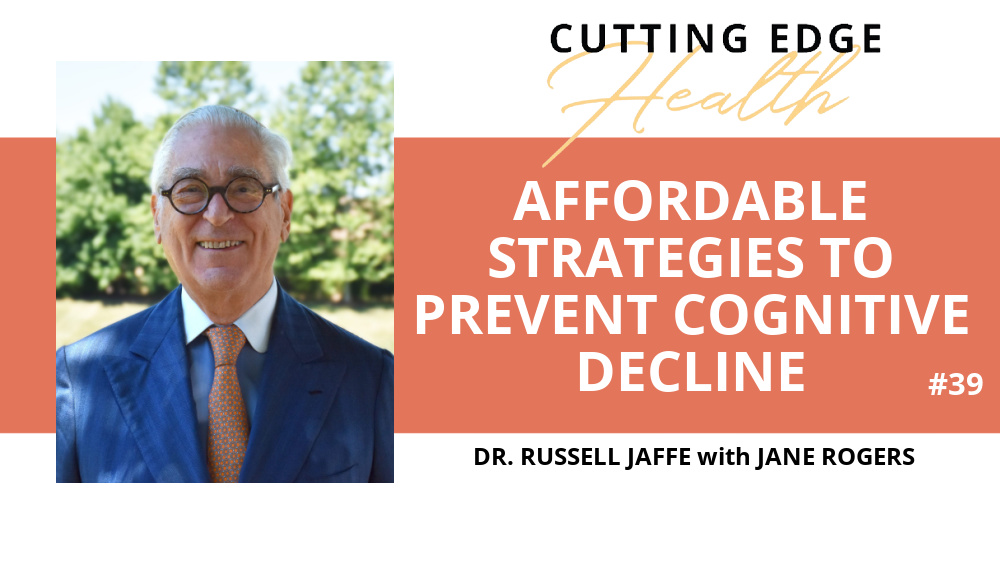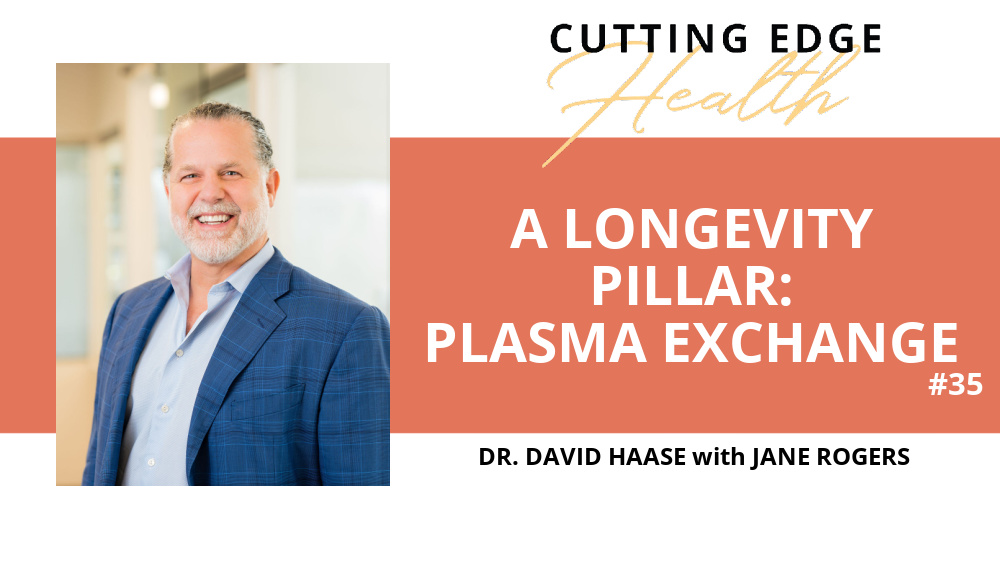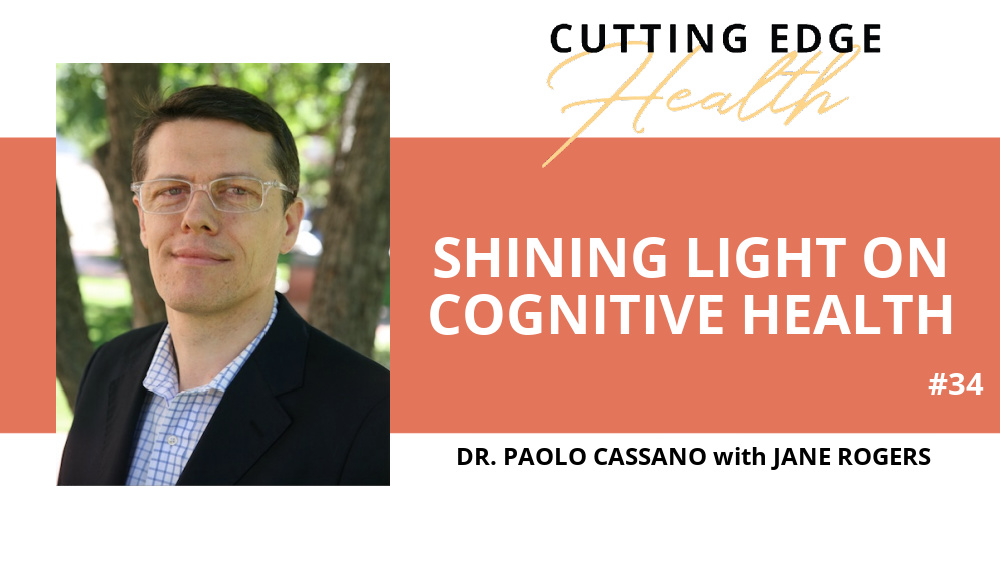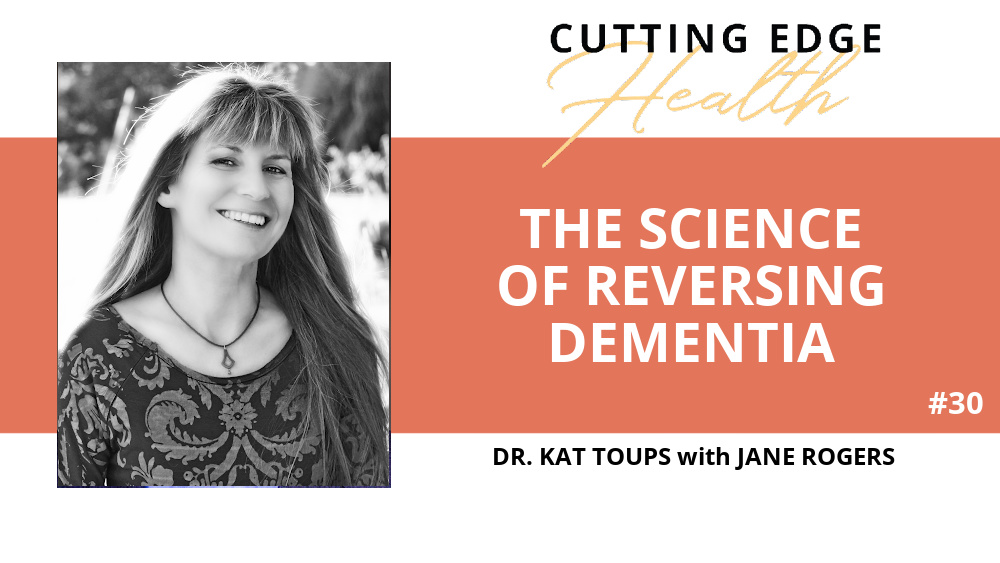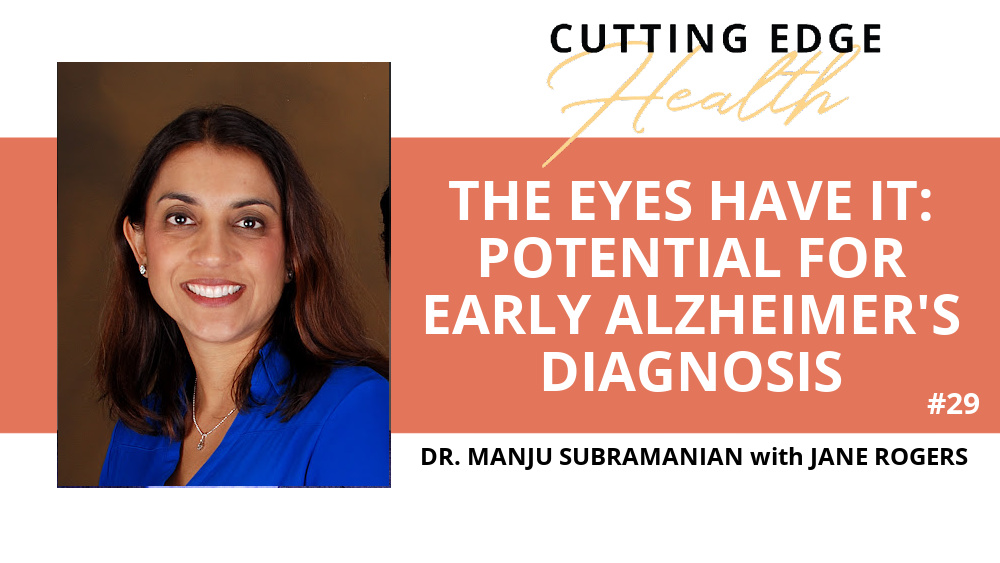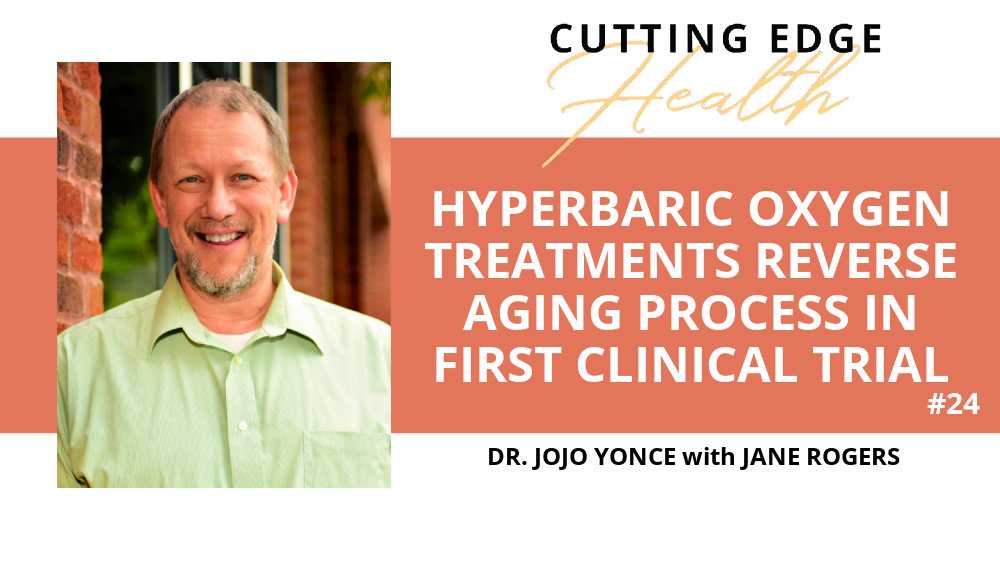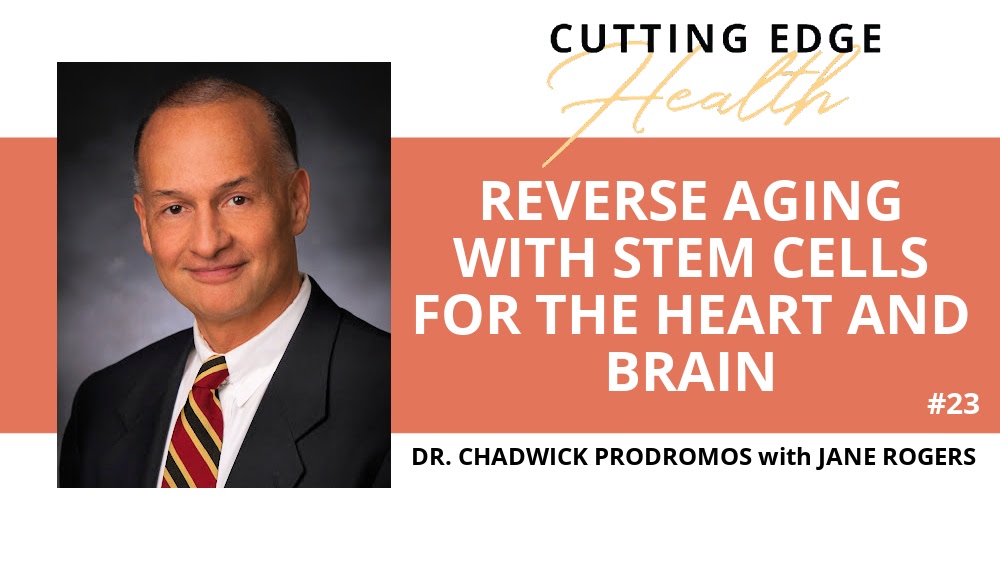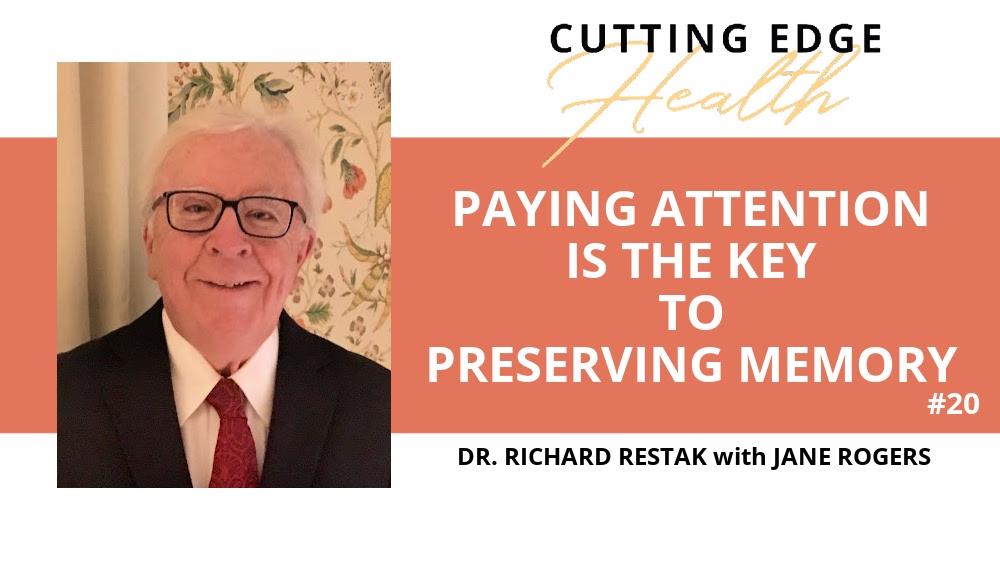EPISODE #30
THE SCIENCE OF REVERSING DEMENTIA
Dr. Kat Toups
with Jane Rogers
Reversing Early-Stage Memory Loss using functional medicine; trials show positive results.
If you only have 3 minutes...
Listen to the Audio version of the podcast below. Click the download button (with icon of arrow pointing down) to save a copy to your device and to share with others!
Subscribe to the podcast on the platform of your choice.
What you'll learn in this podcast....
Dr. Toups thrives on helping people. She partnered with Dale Bredesen, MD on a clinical trial using functional medicine, often called precision medicine, where 84% of the study patients with MCI and early dementia had improvements as shown on their MRI brain scans and other cognitive assessments. The study’s results were published in the Journal of Alzheimer’s Disease in August 2022: Precision Medicine Approach to Alzheimer’s Disease: Successful Pilot Project.
Following this success, Dr. Toups has now launched a much larger clinical trial in six cities around the United States. Participants must live within an hour’s drive of one of these locations:
Walnut Creek (San Francisco East Bay), CA
San Rafael (San Francisco/Marin County), CA
Sacramento (El Dorado Hills), CA
Miami (Hollywood), Florida
Nashville (Brentwood), Tennessee
Cleveland (Rocky River), Ohio
For more information: www.dementiareversaltrial.com
Dr. Toups says dementia happens for multiple reasons. It doesn’t just come out of nowhere, but likely has been slowly building for more than a decade. Dr. Toups says it’s critical to search for contributing factors at the earliest opportunity if you want success in stopping or reversing disease progression. In this interview, she elaborates on the importance of partnering with a functional medicine doctor to do this work. Some of the core contributors to cognitive problems might be inflammatory load in the body, heart health, hormone levels, exercise, stress, sleep, toxins, and infections amongst many other factors.
About Dr. Kat Toups
Kat Toups, M.D., DFAPA, IFMCP is a functional medicine psychiatrist at Bay Area Wellness in Walnut Creek, CA. Dr. Toups is a distinguished fellow of the American Psychiatric Association (the highest honor bestowed by the APA), board certified by the American Board of Psychiatry and Neurology, and previously boarded in geriatric psychiatry.
Dr. Toups is a former assistant professor of psychiatry at UC Davis, where she was the inpatient residency training director, and later the owner/medical director of Bay Area Research Institute, a clinical trials research center in Lafayette, CA. After serving as the principal investigator on over 100 clinical trials for 12 years, including 20 failed trials for Alzheimer’s drugs, she realized that the elusive cure for brain and psychiatric illness was not going to be found in a pill.
She embarked on an intensive course of study (initially sparked by a quest to heal her own serious autoimmune disease) to learn functional and nutritional medicine and completed her training for the Institute for Functional Medicine Certification in October 2013.
Dr. Toups practices functional medicine psychiatry, which seeks to discover the underlying causes of inflammation (like diet/nutrition, lifestyle, genetics including MTHF/Methylation/Sulfation/Detoxigenomic genetic polymorphisms, GI health including food allergies and dysbiosis, toxin exposure, chronic infections, and biochemical abnormalities) that can all be contributors to problems with psychiatric symptoms and/or cognition difficulties. Detection and correction of these problems can result in the resolution of the psychiatric symptoms, rather than just providing a band-aid by only prescribing psychiatric medications without addressing the underlying causes of the problem.
- Never miss an episode! Subscribe and follow on your favorite distribution channel.
- Feedback and questions to hello@cuttingedgehealth.com
- Our team would be honored and grateful, if you could leave a 5-star rating on Apple Podcasts.






